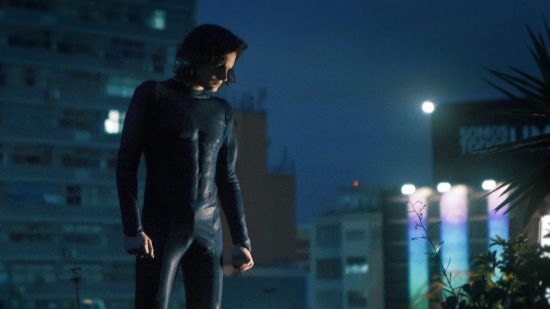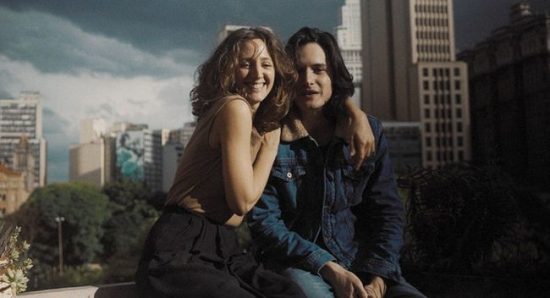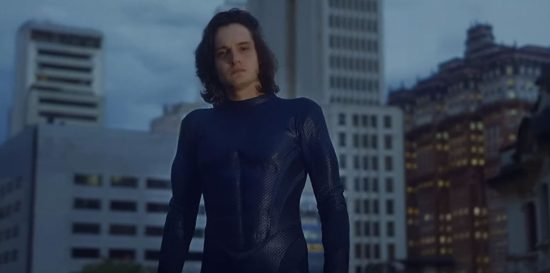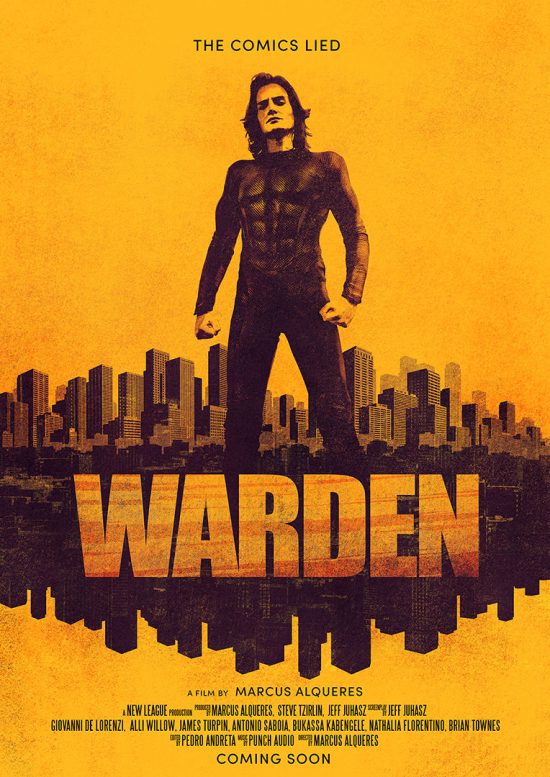Review: Warden -“An interesting and thoughtful sidebar to the superhero genre.”
Directed by Marcus Alqueres
Starring Giovanni de Lorenzi, Alli Willow, Brian Townes, Antonio Saboia
Now here is an intriguing and different angle for those of us who love our capes and tights – a Brazilian superhero film that takes the “mockumentary” approach. This gives Warden both a different style to the flood of superhero films of the last couple of decades and also allows it to get by on a tiny budget ,which is likely less than Marvel spends on marketing a single film, let alone that film’s budget. It’s all presented in this documentary style, meaning instead of a grand narrative – and the accompanying massive, special effects heavy scenes such films normally pack in – we have a lot of “talking heads” style guests, people who knew Warden personally, friends, family, politicians (for and against him), law enforcement officers, journalists and others, backed up by often grainy footage taken from supposed news reports or shaky witness filming with a phone, or grungy CCTV footage of Warden in action.
The film is trying to frame itself as an examination of just what it would mean if there was indeed a superpowered metahuman in our world, an area the likes of Watchmen and The Boys have both commented on before, but here framed as a documentary film. We see young Daniel (Giovanni de Lorenzi), some photos and video footage from his youth. His mother and father both died when he was very young, it is inferred from some sort of odd radiation exposure (hinting that, in classic comic book tropes, this same exposure caused him to develop powers). As he gets older he starts to manifest these powers, learning more of what he can do day by day – like the Bruce Willis character in Unbreakable, he never seems to get ill, like Superman he develops enormous strength and endurance (and like the Man of Steel, while he starts by leaping tall buildings, later he develops flight powers too).
What to do with these powers, especially in a city rife with violent crime and a political and policing community riddled with corruption? Why use those powers to fight for the common good, of course! As one commentator notes, there’s no manual for this in real life, so he has learned from the comic books. The problem is, what is the common good? What may start seeming to be helpful to the community may change (grabbing some bad guys means rights violated, so no legal case can be brought against them, which Warden claims shows how broken the system is, despite him being the one to break the rules). And what happens when some start to manipulate this rising hero for their own ends, stroking his ego, lending support (for their own ends), and what happens to those who speak out against someone who now has all this power?
It’s a good mix, and while it is framed around the idea of the superhero, it’s no great stretch to also consider it a commentary simply on any one person holding too much power, be it an actual superpower, or simply having too much political power or too much money and influence that allows you to basically push what you think is right without listening to any criticism (or worse, reacting very badly to such critiques), and the fact that it’s not healthy for any society to have just a tiny portion holding massive power over everything else. The drawback to the approach is, perhaps, that we never really get to know Warden/Daniel well enough to get more emotionally involved with him, but this is balanced by the philosophical arguments raised by the film.
An interesting and thoughtful sidebar to the superhero genre.
Warden is available on streaming now.













